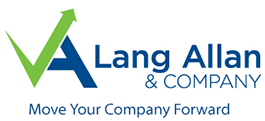If you are the owner of a small or midsize business who is looking toward retirement, this could be the time to start thinking about selling your company. Or maybe you’re a family-owned business poised for growth. In either case, avoid the FSBO (for sale by owner) route. Whether you’re looking to buy or sell, this is not the time to do it yourself.
Humans are not the only ones who follow a standard life cycle. Businesses do, too. As a matter of fact, every business — no matter how large or small — goes through these phases:
- Concept and Startup
- Growth
- Maturity
- Decline
- Death/Closure/Sale or Rebirth
If you’re in Stage 2: Growth or Stage 5: Rebirth, you might be thinking about acquiring or merging with another business, commonly known as M&A (mergers and acquisitions). If you’re in Stages 3: Maturity, 4: Decline or 5: Death/Closure/Sale, M&A could be the solution for you too.
Reasons to Consider M&A
The following scenarios might be reasons for you to consider M&A. You’d like to:
- Increase your market share by taking over a competitor.
- Use surplus cash for more profitable endeavors than investing in your existing business for a possible lower return.
- Survive! By partnering with another business or selling outright, you can avoid withering on the vine and taking a loss.
Any path toward success must be well prepared, especially if you have little or no M&A experience.
If you’re a potential buyer, you’ll need help with the following:
- Arranging the necessary finances for the deal, including support in negotiations with the financing company.
- Structuring the transactions, scheduling the payments, and getting agreements from all involved stakeholders.
- Drafting the terms of the deal and finalizing legal terms.
- Making the necessary strategic decisions, such as when to publicly announce the deal to the open market and to employees.
If you’re a potential seller, you’ll need help with:
- Substantiating all reported income, especially if it’s been deferred to reduce tax liabilities. The same goes for any expenses that have been pushed forward.
- Filling in any gaps of weak or missing documentation. This is especially important with key intangible assets such as patents, licenses, employee contracts, and proprietary software.
- Analyzing and strengthening internal controls, and standardizing any casual systems by implementing formal policies and procedures and documenting them.
Whether you are a buyer or a seller, the more you know, the more you realize what you don’t know. We can take you through what could be a complicated process and make it less stressful and more profitable. Call us today to ensure that you are maximizing your potential.
